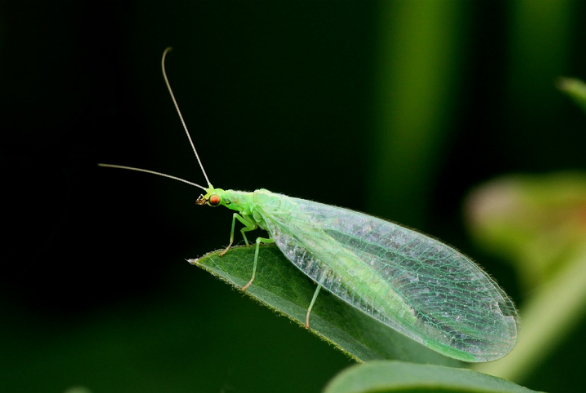Researchers at the University of Liverpool are leading a new international project to investigate the curious phenomenon of ‘male-killing’ microbes in insects.
Many insect species carry microbes within their reproductive cells. Importantly, these microbes can only be passed down to offspring through the maternal line. Males are therefore seen as a ‘reproductive dead-end’ by the microbes, who have evolved to kill them off. Natural selection, of course, promotes mutations in insects that rescue these males and some insects, such as species of lacewing and butterfly, can evolve quickly to do so.
In collaboration with the National Agriculture and Food Research Organization in Japan, Professor Greg Hurst and Professor Steve Paterson from the University’s Institute of Integrative Biology have been awarded £440,000 through UK Research and Innovation’s (UKRI) Fund for International Collaboration to investigate the genetics and evolutionary dynamics of male-killer suppression in the lacewing Mallada desjardinsi with Dr Daisuke Kageyama from the Institute of Agrobiological Sciences, National Agriculture and Food Research Organisation, Japan.
Principal investigator, Professor Hurst explains: “Evolution has historically been thought of as a slow process, happening over geological time periods. However, we now know that contemporary evolution can, in fact, be very fast, with new genetic mutations spreading rapidly through natural populations.
“We aim to answer long-standing questions about the ‘rescue mutation’ which allows male-killing to be suppressed so quickly, such as how it affects ‘maleness’ and ‘femaleness’ in the species, its impact on insects’ ability to reproduce, and how similar the rescue factor is in lacewings and butterflies.”
The project is one of ten to be funded as part of the first wave of Fund for International Collaboration programmes, which will see UK researchers collaborate with counterparts in Japan together to tackle major global challenges. The projects are being supported with £4.7 million of funding, delivered by UKRI and match-funded financially and in-kind by the Japan Society for the Promotion of Science.
The Fund for International Collaboration aims to enhance the UK’s excellence in research and innovation through global engagement, forging new bilateral and multilateral research and innovation programmes with global partners.
Business Secretary Andrea Leadsom said: “The UK has a well-earned reputation for world-class research and innovation. Programmes like the Fund for International Collaboration have put us at the forefront of a global network of academic and business partnerships tackling some of humanity’s greatest challenges, from the impact of climate change to critical health issues.”
